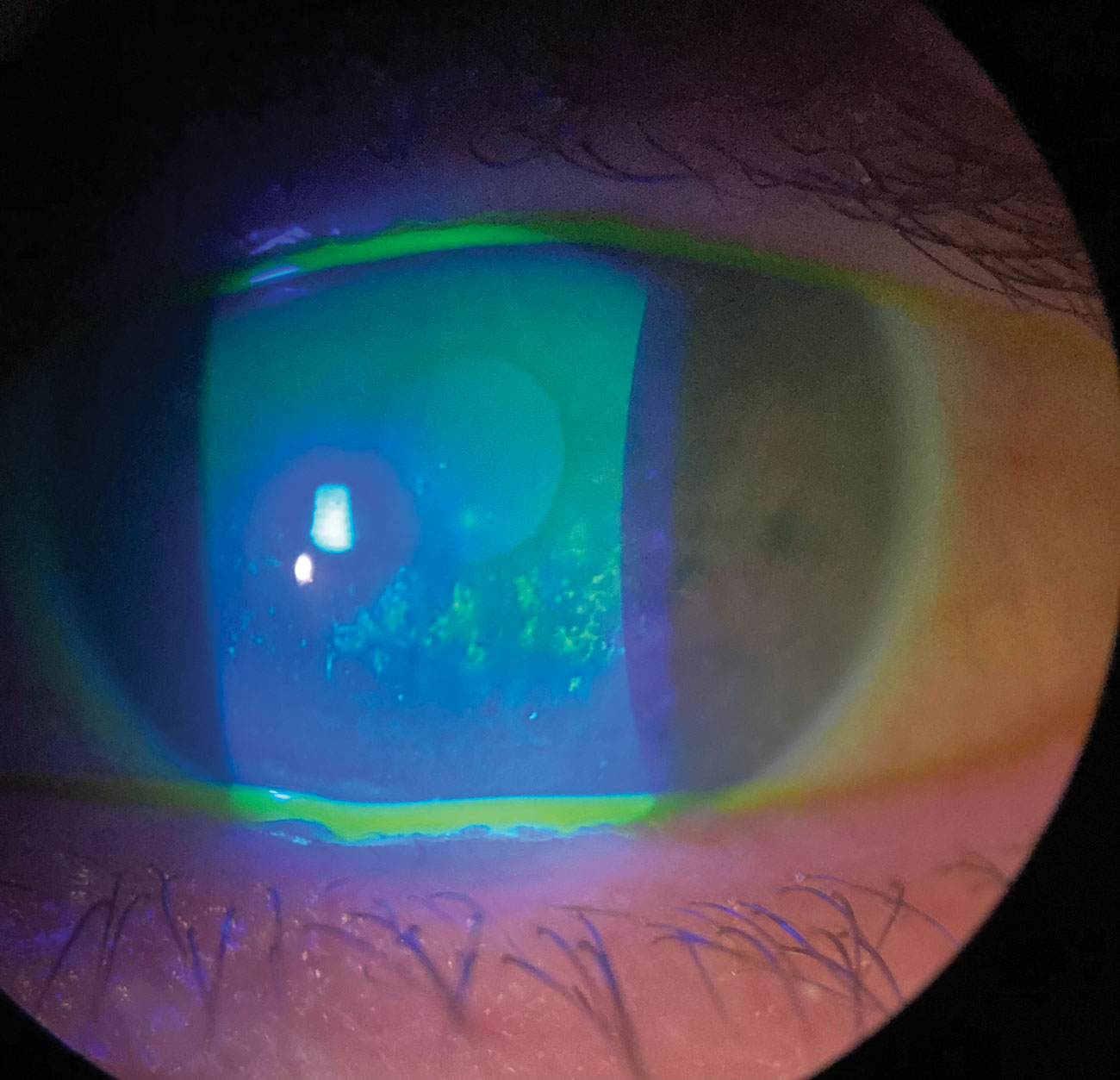 |
This study found no difference in dry eye severity between those who supplemented with omega fatty acids and those who didn't. Photo: Pam Theriot, OD. Click image to enlarge. |
While several small randomized studies have suggested that marine ω-3 fatty acid supplementation may aid the treatment of dry eye disease (DED)—and one prominent trial, the DREAM study, found no evidence—questions also remain regarding whether these supplements can prevent the condition. Looking to answer this, a recent study found no connection between ω-3 fatty acid supplementation and the incidence of DED.
The researchers conducted an ancillary analysis of data from the Vitamin D and Omega-3 Trial (VITAL), which aims to assess the effects of those two agents in preventing cancer and cardiovascular disease. This analysis (called VITAL Dry Eye) included 23,523 US adults—men age 50 and older and women 55 and older—who did not have a previous diagnosis of DED or any severe dry eye symptoms at the time of study entry. The median age was 67 years, and 24% were women.
During a median of 5.3 years of treatment and follow-up, the researchers reported that 2% of the participants were diagnosed with DED, which was confirmed with medical records. There was no difference in diagnosed DED between participants in the ω-3 fatty acid or placebo groups. Additionally, the researchers observed no difference between cohorts for diagnosed DED plus incidence of severe DED symptoms.1
These findings, which demonstrated that 1g per day of marine ω-3 fatty acid had no effect on the incidence of diagnosed DED or reported severe DED symptoms, appear consistent with conclusions from the DREAM study. The current study also found no benefit with supplementation in newly reported severe DED symptoms, a component of the secondary endpoint that, according to the study authors, is more closely related to the endpoints explored in DREAM.
“When considered together, neither DREAM, which examined the effect of ω-3 supplementation as an adjuvant in DED management, nor our study, which assessed the individual effect of ω-3 supplementation in DED prevention, provides support for long-term use of ω-3 supplements in reducing risks of DED,” they concluded.
In a commentary on the VITAL Dry Eye study, Penny Asbell, MD—the principal investigator of the DREAM study—noted, "Unfortunately, the hope that ω-3 fatty acid supplementation would provide benefit for a wide array of diseases has eroded as the results of large-scale clinical trials have accumulated."2 She pointed out that the medical benefits of ω-3 supplementation are limited to "lowering triglycerides, secondary prevention of coronary heart disease, and a few others." Given the longstanding habit within eye care of recommending omega fatty acids, however, Dr. Asbell did conclude, "Likely the debate on the role of ω-3 supplements for DED will continue."
1. Christen WG, Cook NR, Manson JE, et al. Efficacy of marine ω-3 fatty acid supplementation vs placebo in reducing incidence of dry eye disease in healthy US adults: a randomized clinical trial. JAMA Ophthalmol. June 9, 2022 [Epub ahead of print]. 2. Asbell PA, Maguire MG. Another disappointment for ω-3 fatty acid and dry eye disease. JAMA Ophthalmol.Published online June 09, 2022. |

